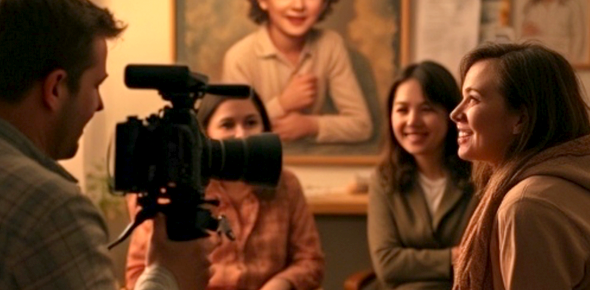
10:00am-11:30am on Saturday 22 March
Alison Richard Building, Room S1 (first floor), Sidgwick Site 7 West Road, CB3 9DP
The Story Makers will be a crash course in talking to people and collecting narratives. After a short talk about the role of stories in creating and sustaining society (and ourselves), we will dive right in to the methods and practices of ethnographic interviewing. We will discuss the shared knowledge production that occurs in interviews—the dynamics of ‘storytelling’ and ‘storylistening’—and, in this process, we will all become storymakers!
Everyone tells stories. We tell stories with friends, family, strangers; we do it though conversations, jokes, social media; we do it with words, photos, videos, paintings; we do it to make sense of the world, to make people laugh, to align our beliefs with our actions. In the same ways, everyone is also a storylistener. So much of our day-to-day life revolves around stories being told and being heard. Stories make us who we are and they help us navigate through our day-to-day lives.
Dr. Rick Latham Lechowick has interviewed everyone from actors in Hollywood to sectarian militia commanders in Iraq. His 2024 book, ‘I won’t let them be like me’, is a collection and discussion of narratives collected with Ezidi women after the Sinjar Genocide.
Despite that serious topic, this workshop will be aimed at all ages—at anyone interested in discovering and inspiring stories, be they family stories, travel stories, adventure stories, cooking stories. Everyone is welcome. (Collecting narratives of the older generations tends to be a particularly fun experience for younger storymakers!) Whether working alone, with friends, or as a part of a family unit, the storymaking process is possible and exciting for all.
Finally, it is at the end where the work really begins. At the workshop’s conclusion, participants will head off to find and gather narratives. Then, after a week or so, we will reconvene online to follow up (timing TBD), in order to discuss how the story collection process has gone, and to discuss any obstacles encountered. After that gathering, and a recursive look at our practices, participants can either write up what they have already collected or the can go off and collect more narratives before writing up.
By the end of the Cambridge Festival, our goal is to have a series of stories printed out in an informal book of narratives for all participants to take home!

